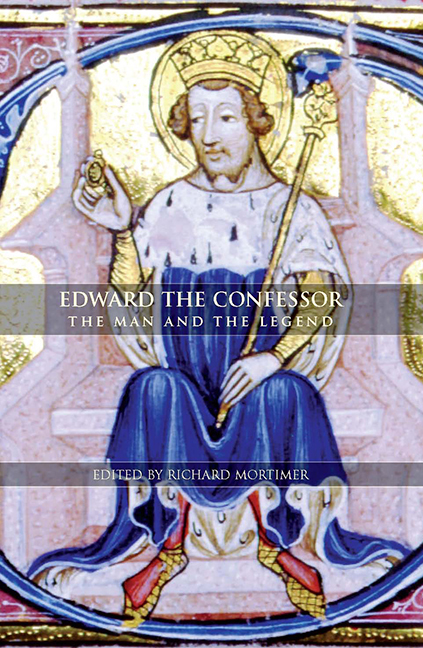Book contents
- Frontmatter
- Contents
- List of illustrations
- List of maps
- Preface
- Abbreviations
- Genealogical table
- 1 Edward the Confessor: the Man and the Legend
- 2 Edward the Ætheling (c. 1005–16)
- 3 Edward and Normandy
- 4 Edward the Confessor and the Succession Question
- 5 Edith, Edward's Wife and Queen
- 6 Edward the Confessor's Westminster Abbey
- 7 New Glimpses of Edward the Confessor's Abbey at Westminster
- 8 Craftsmen and Administrators in the Building of the Confessor's Abbey
- 9 The Sanctity and Canonisation of Edward the Confessor
- Bibliography
- Index
2 - Edward the Ætheling (c. 1005–16)
Published online by Cambridge University Press: 25 October 2017
- Frontmatter
- Contents
- List of illustrations
- List of maps
- Preface
- Abbreviations
- Genealogical table
- 1 Edward the Confessor: the Man and the Legend
- 2 Edward the Ætheling (c. 1005–16)
- 3 Edward and Normandy
- 4 Edward the Confessor and the Succession Question
- 5 Edith, Edward's Wife and Queen
- 6 Edward the Confessor's Westminster Abbey
- 7 New Glimpses of Edward the Confessor's Abbey at Westminster
- 8 Craftsmen and Administrators in the Building of the Confessor's Abbey
- 9 The Sanctity and Canonisation of Edward the Confessor
- Bibliography
- Index
Summary
EDWARD THE CONFESSOR, patron saint of the English monarchy in the later Middle Ages, and certified national treasure, was the son of King Athelred the Unready, personification of national degeneracy throughout the Middle Ages, and certified natural disaster. In each case, the challenge which faces the modern historian is to separate the man from the legend, to establish his place in the appropriate historical contexts, and thereby to bring him into sharper focus. In the case of Edward, it is especially important to dwell on the position in which he might have found himself during his boyhood, and to ponder certain questions. No-one could doubt that he would have been deeply affected by his twenty-four years as an exile in Normandy, from his early teens to his late thirties; but how might he have looked back, during his period of exile, or when he returned to England, on what he had been exiled from? What might he have remembered of his upbringing during the closing years of his father's reign: from his birth, on a date unknown in 1003, 1004, or 1005, to the beginning of his extended period of exile in Normandy, which lasted from c. 1017 to 1041? What is known or can be surmised about Edward's relations with his father and mother, with his siblings, or indeed with his half-siblings? How had he fared as an atheling, or king's son, with or without any prospects of his own? What might have been his understanding of English politics, or his attitude to the Danes; and how conscious can he have been of his ‘English’ past?
Edward's birth
EDWARD was the son of King Athelred by his second wife, Emma of Normandy; and from the outset his life was determined by the distinctive political identity accorded to him as the product of this union. Little is known of Athelred's first wife, Alfgifu, beyond the supposed fact that she was a daughter of Thored, earl of the Northumbrians, and beyond the supposed fact that it was she who bore him a quantity of sons and daughters, between (roughly) 985 and 1000.
- Type
- Chapter
- Information
- Edward the ConfessorThe Man and the Legend, pp. 41 - 62Publisher: Boydell & BrewerPrint publication year: 2009

